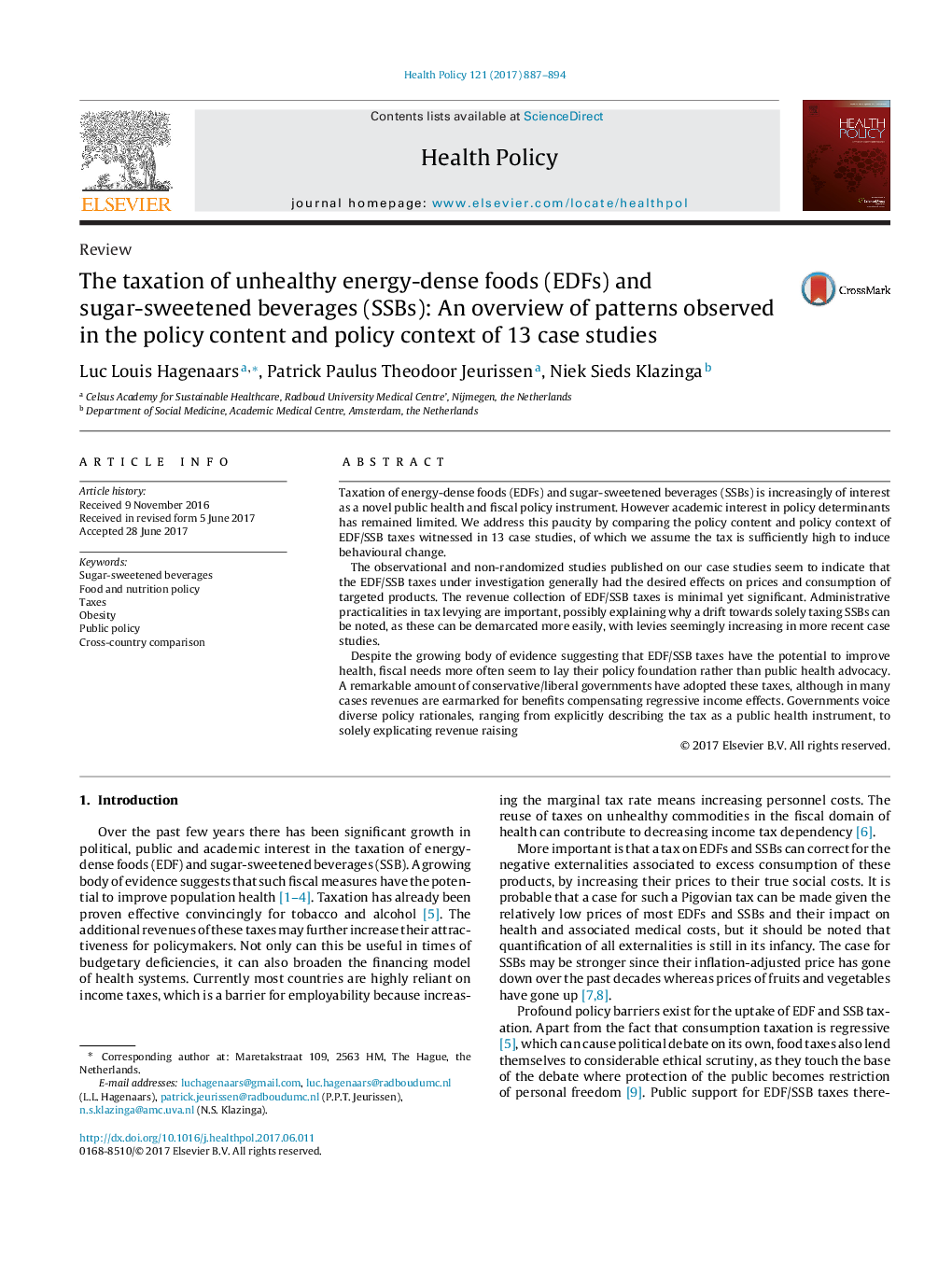| کد مقاله | کد نشریه | سال انتشار | مقاله انگلیسی | نسخه تمام متن |
|---|---|---|---|---|
| 5723412 | 1411448 | 2017 | 8 صفحه PDF | دانلود رایگان |

- A remarkable amount of conservative/liberal governments adopted the taxes.
- Fiscal need is a main driver of the policies.
- Taxing SSBs is more common than taxing EDFs.
- SSB taxes can be administered more easily compared to EDFs.
- The SSB tax levy of recent cases is relatively high.
Taxation of energy-dense foods (EDFs) and sugar-sweetened beverages (SSBs) is increasingly of interest as a novel public health and fiscal policy instrument. However academic interest in policy determinants has remained limited. We address this paucity by comparing the policy content and policy context of EDF/SSB taxes witnessed in 13 case studies, of which we assume the tax is sufficiently high to induce behavioural change.The observational and non-randomized studies published on our case studies seem to indicate that the EDF/SSB taxes under investigation generally had the desired effects on prices and consumption of targeted products. The revenue collection of EDF/SSB taxes is minimal yet significant. Administrative practicalities in tax levying are important, possibly explaining why a drift towards solely taxing SSBs can be noted, as these can be demarcated more easily, with levies seemingly increasing in more recent case studies.Despite the growing body of evidence suggesting that EDF/SSB taxes have the potential to improve health, fiscal needs more often seem to lay their policy foundation rather than public health advocacy. A remarkable amount of conservative/liberal governments have adopted these taxes, although in many cases revenues are earmarked for benefits compensating regressive income effects. Governments voice diverse policy rationales, ranging from explicitly describing the tax as a public health instrument, to solely explicating revenue raising
Journal: Health Policy - Volume 121, Issue 8, August 2017, Pages 887-894